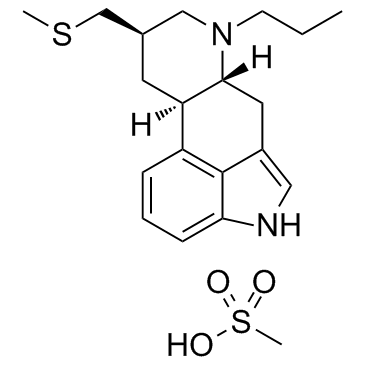Executive control in Parkinson's disease: effects of dopaminergic medication and deep brain stimulation on anti-cue keypress performance.
Jos J Adam, Hanna van Houdt, Bart Scholtissen, Veerle Visser-Vandewalle, Ania Winogrodzka, Annelien Duits
Index: Neurosci. Lett. 500(2) , 113-7, (2011)
Full Text: HTML
Abstract
Using an anti-cue keypress task, we examined executive control in Parkinson's disease (PD) patients treated with deep brain stimulation (DBS) of the subthalamic nucleus (STN) and dopaminergic medication. Across sessions, we varied stimulation (on, off) and dopaminergic medication (on, off). Reaction time (RT) results of the PD patients and their age-matched controls showed a consistent pattern of RT costs and benefits generated by anti-cues with short and long preparation intervals, respectively. This pattern was evident in all sessions, except when DBS stimulation and medication were off. In this condition PD patients showed no RT benefits. These findings are discussed in terms of an executive control process that suppresses the automatic but inappropriate response activation generated by anti-cues. In PD this mechanism is severely compromised but it can be remediated by dopaminergic medication and DBS, suggesting an essential role of the basal ganglia in the selection and suppression of competing responses.Copyright © 2011 Elsevier Ireland Ltd. All rights reserved.
Related Compounds
| Structure | Name/CAS No. | Molecular Formula | Articles |
|---|---|---|---|
 |
Pergolide mesylate salt
CAS:66104-23-2 |
C20H30N2O3S2 |
|
Induction of methionine sulfoxide reductase activity by perg...
2013-01-15 [Neurosci. Lett. 533 , 86-9, (2013)] |
|
Determination of pergolide in horse plasma by UPLC-MS/MS for...
2014-06-01 [J. Pharm. Biomed. Anal. 94 , 54-7, (2014)] |
|
Evaluation of the efficacy of pramipexole for treating levod...
2013-01-01 [Intern. Med. 52(3) , 325-32, (2013)] |
|
Juvenile hormone synthesis is stimulated by activation of do...
2011-01-01 [Dokl. Biochem. Biophys. 441 , 273-5, (2011)] |
|
The effects of pergolide on memory and oxidative stress in a...
2012-03-01 [J. Physiol. Biochem. 68(1) , 59-69, (2012)] |